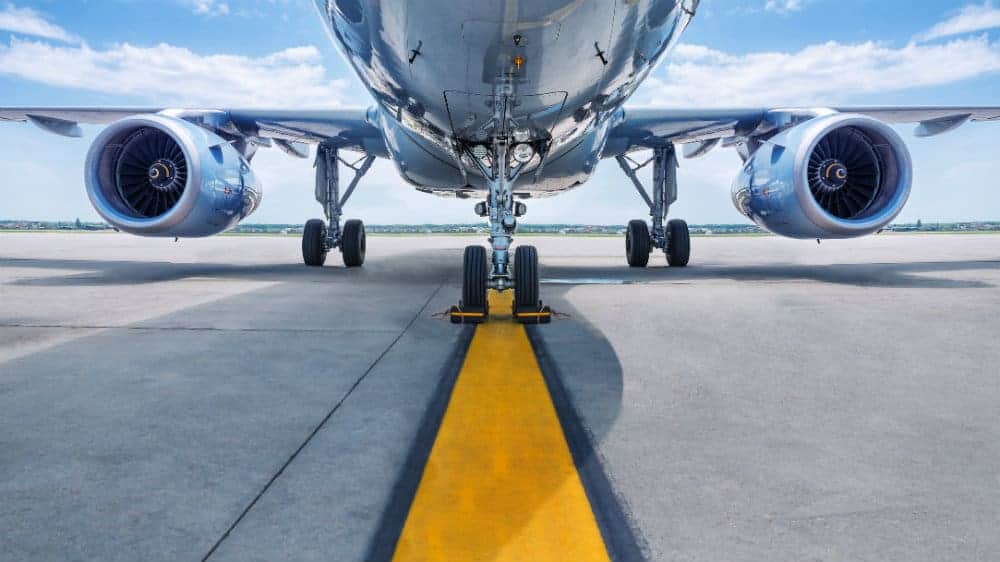Air Canada (TSX:AC) stock went from its all-time high to a three-year low in just two months. That is the fate of capital-intensive companies like airlines that depend heavily on demand to stay afloat. Airlines suffer from the same fate as an individual who lives paycheck to paycheck and has little savings. Such individuals are burdened with debt when they lose their jobs or face an unexpected expense. Similar is the case with airlines.
Airlines spend 80-90% of their revenue on operating expenses, which leaves them with little extra cash for emergencies. Generally, capital-intensive companies have high debt, but this debt should be manageable. The COVID-19 pandemic has disrupted the travel industry. World governments have enforced travel bans, putting all means of travel — air, road, rail, and water — on standstill.
Airlines are taking debt to fund their current losses
Airlines have lost more than 85% of their revenue, pushing almost all air carriers into losses. Even Southwest Airlines, which never once reported a loss in its 49 years of flying, lost US$94 million in the first quarter. International Air Transport Association (IATA) expects global airlines to lose $84 billion this year and $16 billion next year. The international travel demand will remain subdued until countries worldwide succeed in containing the coronavirus. Fitch Ratings and IATA do not expect international travel to return to pre-pandemic levels before 2023.
With little income, airlines are losing money on maintaining idled aircraft that are not generating revenue. They are funding their losses by raising new debt. It sounds absurd, but it makes business sense, as the debt gives airlines sufficient liquidity to be ready to fly again when travel demand returns. When the emergency cools, and business normalizes, airlines will be left with massive debt. They will have to cut costs to have enough money to repay the debt.
Fitch downgrades airlines to non-investment grade
Fitch has downgraded ratings of flag carriers like AC and British Airways to “BB-” and ”BB+,” which indicates a risk of default in adverse economic conditions. After a complete lockdown in April and May, domestic travel recovered slightly in June, as lockdowns eased. However, Fitch expects international travel restrictions to remain in place for a longer time. Even if the travel ban is lifted, airlines will struggle to fill the seats and increase the ticket price, thereby making losses per flight.
Fitch noted that even if these airlines start generating positive free cash flow in 2021 or 2022, that would not be sufficient to repay their debt. And any contingency would lead to airlines defaulting on their existing debt. AC has $9.65 billion in long-term debt, and this could rise to $12.25 billion. Its cash reserve of $6.5 billion will not last beyond this year. In the event there is a second wave of coronavirus, the international travel ban will be extended, and AC could risk going bankrupt.
Fitch: Bombardier’s long-term debt is at risk of default
Fitch has also downgraded aircraft and train manufacturer Bombardier’s (TSX:BBD.B) long-term debt to “CCC.” This rating indicates a risk of default irrespective of the economic conditions. Bombardier is taking a bigger hit, as the company was struggling with massive debt, even before the pandemic. The delays in CSeries aircraft back in 2014 had put the company in multiple years of losses.
After six years of losses, Bombardier was coming close to managing its debt with the sale of its rail business to Alstom. The closing of this transaction could have improved its credit rating. But the COVID-19 crisis has put the company back in the downturn. In the first quarter, the US$1.6 billion in negative cash flow left it with US$3.5 billion in cash and US$9.3 billion in long-term debt. The crisis could impact the outcome of the Alstom deal.
Equity shareholders, beware
Fitch’s ratings downgrade comes as a warning to equity shareholders. Airlines and Bombardier are high-risk investments, even for creditors, who have priority over equity shareholders in case of bankruptcy. Bombardier is a ticking time bomb that could collapse if the current situation worsens. AC is hanging to a cliff; it could either survive or fall to $0. It is better to avoid these two stocks.










